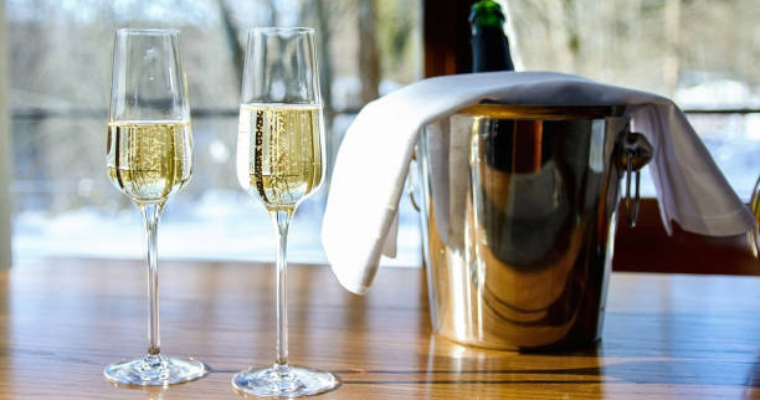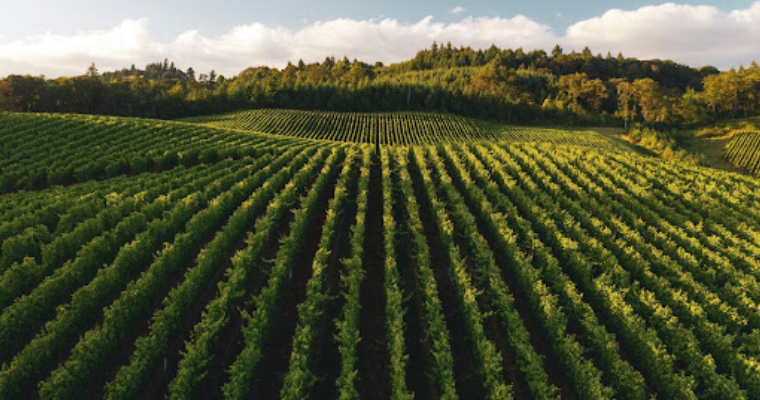Early Bird Ends
January 31, 2024
Judging
Date
May 21, 2024
Winners Announcement
June 20, 2024

The global wine industry has seen a transformative shift in recent years, embracing the burgeoning trend of no-alcohol and low-alcohol wines, sometimes called NOLO. This evolution caters to shifting consumer preferences, environmental concerns, health-conscious choices, and the rising demand for fresher styles in beverages. In terms of consumer sentiment, the market appears to be a mixed bag at the moment but deserves focus.
In response to these evolving preferences, renowned brands like Constellation Brands, under its Robert Mondavi Private Selection label, introduced the 'Naturally Sweet Pinot Noir.' Retailing at $15-16, this wine defies traditional norms, blending the appeal of sweet red notes with the esteemed Pinot Noir style. However, what truly sets it apart is its low alcohol by volume (ABV) of just 9%, achieved by halting fermentation early to retain considerable sweetness.
While sweet red wine has garnered increased interest, the trend of low-alcohol wines has also surged. A pivotal player in this arena, Berlin-based Kolonne Null, specializing in alcohol-free wines, is entering the US market through a partnership with Boisson. This collaboration emphasizes physical points of sale for their products, recognizing the pivotal role of in-person experiences in enhancing consumer engagement and understanding.
The landscape of wine preferences is evolving, encompassing more than just alcoholic content. Florian Ceschi, Director of Ciatti Europe, highlighted in a published interview the paradigm shift toward 'no and low' that extends beyond alcohol levels. This trend spans 'no and low' sulphites, and pesticides, and aims for a reduced carbon footprint, resonating with environmentally conscious consumers seeking sustainable and health-conscious choices.

Image Source: Istock
The proliferation of 'no and low' alcohol products reflects a significant shift in consumer habits. The California wine retailer Bottle Barn currently carries the Eins Zwei Zero brand from Germany, the US Ariel line, the FRE brand, and California’s Kally brand on zero-alcohol wine alternatives. The description of the product competing with Brut Champagne states: “Delicate, tart, and bright. Notes of spearmint and jasmine elegantly weave through this complex sparkling wine alternative. With Champagne as inspiration, Golden Sparkler mirrors both the flavor and experience of a classic bubbly Brut - right down to the champagne-style microbubbles.”
While the NOLO market has expanded rapidly, wine in this category has yet to replicate the taste and mouthfeel of its alcoholic counterparts, unlike NOLO beer's successful emulation. Steve Goodman, an Australian wine consultant, initially found the concept of alcohol-free wine puzzling until personal circumstances led him to explore this realm. His journey illustrates the increasing demand for 'NOLO' products, particularly as consumers seek alternative beverages.
He is involved in initiatives like the $1.98 million NOLO trial facility in South Australia, a joint endeavor between the state government and the University of Adelaide, which aims to bridge this disparity through research and innovation.
Producing NOLO wine that captures the essence of traditional wine is challenging. The absence of alcohol significantly impacts taste and mouthfeel, making it crucial for the industry to explore innovative methods. Australian wineries like Polka Drops, founded by Ben Mellows, focus on enhancing NOLO wine using Australian botanical extracts to create distinctive flavors. However, they emphasize that NOLO should be appreciated as a unique product category, distinct from conventional wine.
Despite the burgeoning industry and increased competition, NOLO consumption in Australia remains a relatively small fraction, with around 10% of customers purchasing zero or low-alcohol products from major retail outlets like Dan Murphy's and BWS.
Indeed, despite some growing interest, a recent survey by market researchers Wine Intelligence highlighted some consumer reservations. Around half of the respondents expressed reluctance toward dealcoholized or reduced-alcohol wines, citing concerns about taste, quality, and the perception that such wines might not qualify as 'real wines.' These findings underscore the ongoing challenges faced by the industry in aligning consumer expectations with innovative product offerings.
Thus to excite a keen interest in NOLO alternatives, consumers must have information and options that demonstrate that NOLO mirrors the sensory experience of traditional wine. Although NOLO wine options have seen progress, particularly in sparkling varieties, the still wine segment requires further refinement to match consumer expectations.
As the industry continues to invest in research and innovation, the horizon appears promising, hinting at an eventual convergence between consumer demand and the evolution of 'no and low' alternatives in the world of wine.

Image Source: Unsplash
Creating non-alcoholic wines that mirror their alcoholic counterparts remains a considerable challenge. To ensure quality, winemakers seek wines with robust flavors, aromas, and mouthfeel, crucial elements attained through careful grape selection and winemaking techniques. The most suitable wine styles for producing non-alcoholic variants include aromatic, full fruit-driven wines with medium acidity, and red wines boasting soft tannins.
Amidst these challenges, companies like BevZero, with over 30 years of expertise in de-alcoholization, emphasize starting with fully fermented products to retain essential flavors and aromas. Their approach involves delicate alcohol removal, preserving the complexity and balance of the resulting non-alcoholic product.
The wine industry's response to consumer demand for healthier drinking options and fresher styles has thus sparked innovation in producing no-alcohol and low-alcohol wines. The market for such beverages has grown significantly and with some forecasting continued global expansion.
[[relatedPurchasesItems-61]]
In conclusion, the surge in no-alcohol and low-alcohol wines reflects a fundamental shift in consumer behaviors and preferences. While challenges persist in aligning taste and quality perceptions, ongoing advancements in vineyard practices, winemaking techniques, and consumer engagement strategies indicate a promising future for this evolving segment within the wine industry.
This transformation underscores a paradigm shift toward healthier, fresher, and more inclusive beverage choices, setting the stage for an exciting future in wine consumption and production.
A unique opportunity to present your wines to America's top sommeliers. The wine scores are benchmarked for on-premise channels by top sommeliers, master sommeliers, wine directors and restaurant wine buyers. Enter Your Wines Before January 31, 2024, To Save.
